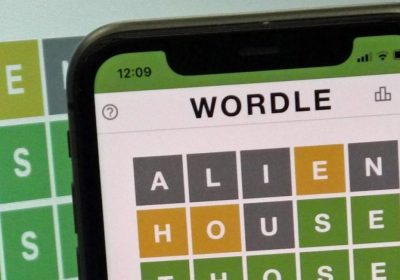
5 Harmonious Hacks for Mastering Piano Keyboard Techniques
The piano is an unparalleled outlet for stress relief. It calms the mind, reduces anxiety, and improves intellect through eye-hand coordination. Learning the keyboard may be everything you need if you love music or need to learn a new skill.
A typical piano keyboard contains 88 keys, although some may have only a few, like 36. Therefore, the complexity of learning a piano depends on the type of piano you use and your skills. If you are a beginner, starting with a simple keyboard and upgrading your skills with time is best.
This guide discusses the top five tips for mastering piano keyboard techniques and taking your piano playing to the next level. Keep reading.
How Long Does It Take To Learn A Piano?
Mastering the piano keyboard may seem daunting, but it isn’t if you are consistent and patient. Like any other skill, it requires discipline and dedication to take the shortest time.
So, how long does it take to learn a piano? You may wonder. The duration varies from one person to another. You may take the shortest time if you are entirely devoted to the learning process and have a great tutor. Similarly, you may take longer if you have other commitments and rarely get time for piano practice.
Below are practical tips to help you master the piano keyboard techniques effectively.
1. Understand the Basics
Understanding the basics will help you develop a solid piano-keyboard foundation. Start by choosing the type of piano keyboard you want to learn. Common types of keyboards include synthesizers, arrangers, organs, hybrids, and digital pianos.
Once you choose the keyboard, master all the keys and how they function. Once you know what they do, using the keys will be easy. As a beginner, you may take the most time learning every key, but this helps you understand the piano well.
Understand the posture you should take when playing your piano, how to place the fingers, and how to use the piano sheet effectively.
2. Practice Regularly

Practice makes perfect. You must often play the piano to master the techniques, even with a busy working schedule. Ideally, you can set up 15 to 20 minutes per day when you enjoy uninterrupted sessions for the practice. Here are practical tips to try when you need to practice.
- Set aside a specific time during the day and let your family or close friends know about it. Your practice time should be like a scheduled appointment to avoid skipping it.
- Stay away from smartphones, television, or other gadgets that may distract your piano practice.
- Take a one or two-day break every week to rest your body and refresh the mind.
- Record yourself if you are practicing yourself. Recoding allows you to notice any mistakes you may have made and rectify them in the future.
3. Explore Music Genres
When learning to play the piano, you will probably start with one song. However, you should explore different types of songs to study all variations and learn how to use the piano to adjust accordingly.
Get recommendations on the types of music genres you may try for your skill. Common genres include pop, classical, jazz, folk, country, soul, and rock. Each genre offers something unique and familiarizes you with hearing different sounds and rhythms. With time, you will have increased your piano playing mastery without realizing it, and you won’t struggle to change from one song to another.
4. Maintaining the Correct Posture
Posture is an essential aspect of mastering piano keyboard techniques. When your posture is correct, it becomes easier for you to reach all the keys of the piano without experiencing back pain or tension in your neck. If this is your first time learning or using the piano keyboard, consider the tips below to enjoy the experience and reach all parts of the key.
- Choose a piano that matches your height. Pianos come in varying sizes, and choosing the best one for your height will help you reduce the tension of reaching its tabs.
- Seat and lean for a more comfortable use. Avoid sitting at the edge of the bench or in any set that doesn’t have the leaning option, mainly if you will be using it for a long time.
- Find a footrest to make your legs more comfortable
- Ensure the head and the neck are aligned well, as the neck forms the foundation of the overall body posture
- Place your elbows around the keyboard area, and leave a comfortable distance from the rest of your body
- Attach fingers firmly to the keyboards but ensure they are flexible for east movement
- Leave a considerate distance between your knees and the keyboard
5. Enroll for Practice

While you can enroll in piano classes and learn alone, seeking professional guidance is more beneficial. The expert can take you through the hard sessions and help you with the piano keyboard techniques more quickly than when done alone.
If you need help, find a tutor near your home area to check on you during practice. Similarly, enroll in online classes for professional tutorials to enhance your skills. Be open to your teacher regarding the areas that challenge you the most to find practical solutions.
Conclusion
Learning the piano is a vital skill for anybody to try. Be passionate about it and schedule your plans to find the ideal learning time. Understand the basics to strengthen your piano mastery foundation, and practice regularly. Don’t hesitate to seek the help of a tutor for more helpful insights.
Mastering piano keyboard techniques will take the least time if you are passionate and disciplined in your training.






